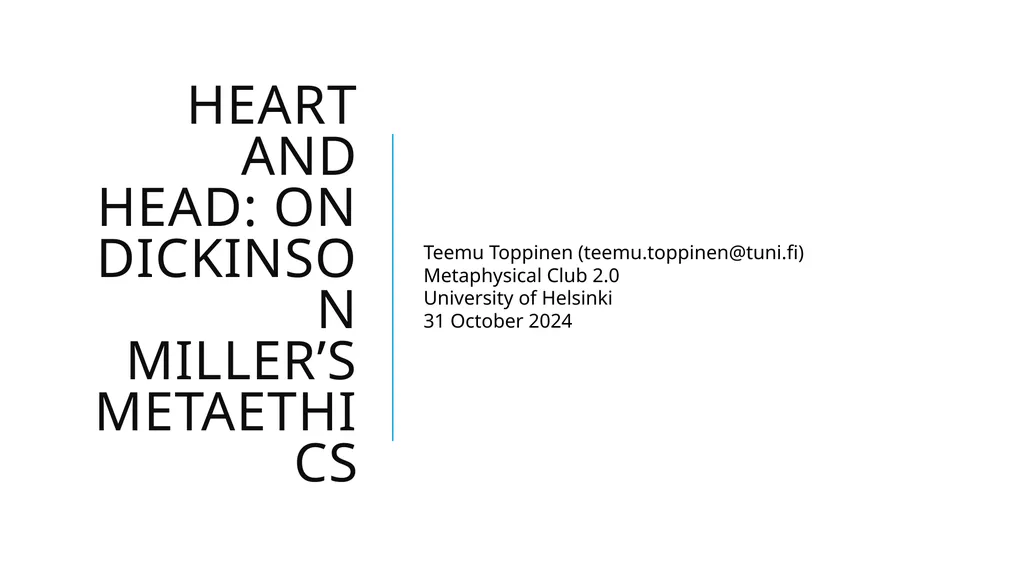
Author : briana-ranney | Published Date : 2025-08-16
Description: Heart and Head: On Dickinson Millers Metaethics Teemu Toppinen (teemu.toppinentuni.fi) Metaphysical Club 2.0 University of Helsinki 31 October 2024 The plan for today The aim: to highlight and explain Dickinson Millers very little knownDownload Presentation The PPT/PDF document "" is the property of its rightful owner. Permission is granted to download and print the materials on this website for personal, non-commercial use only, and to display it on your personal computer provided you do not modify the materials and that you retain all copyright notices contained in the materials. By downloading content from our website, you accept the terms of this agreement.
Here is the link to download the presentation.
"Heart and Head: On Dickinson Miller’s Metaethics"The content belongs to its owner. You may download and print it for personal use, without modification, and keep all copyright notices. By downloading, you agree to these terms.













